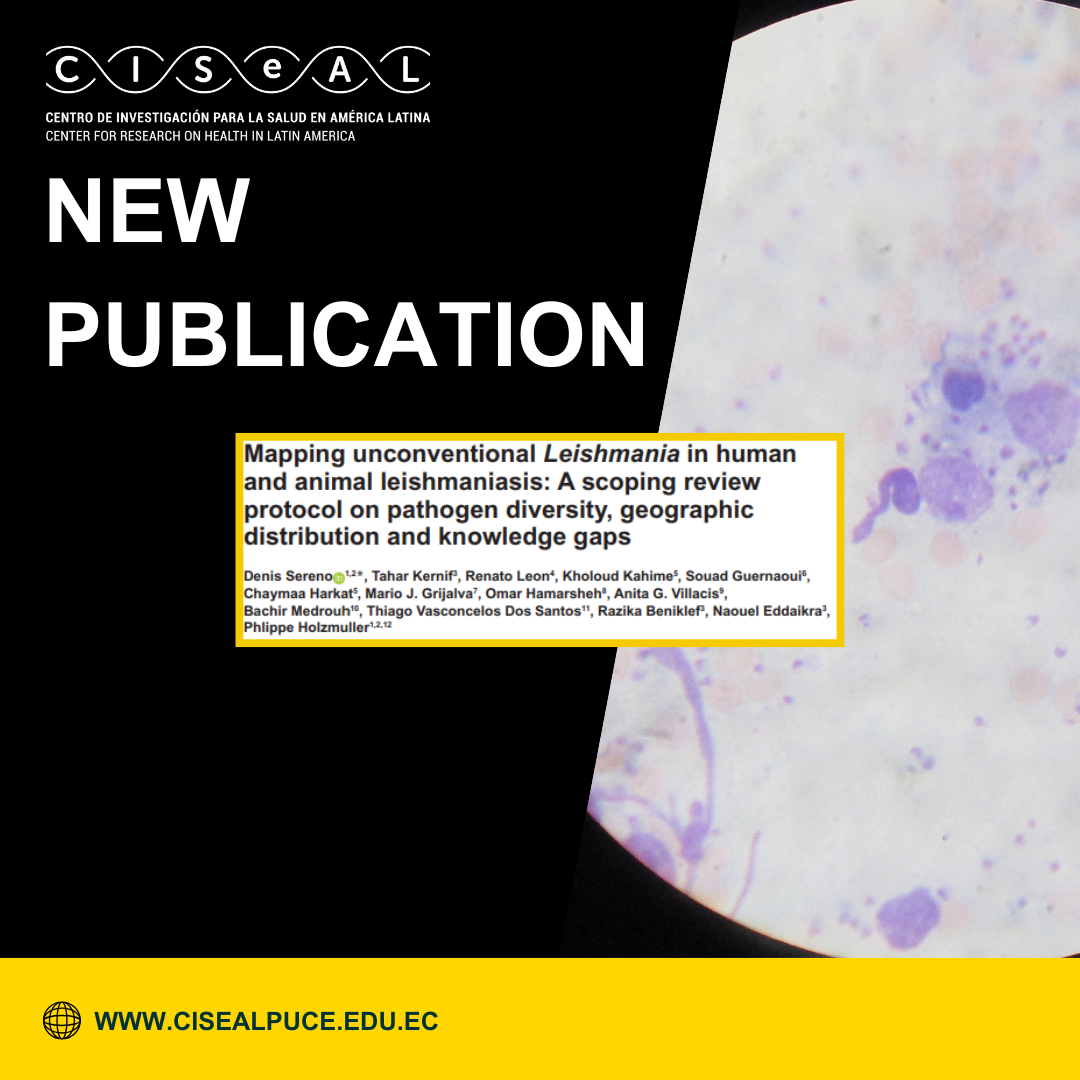 The research led by Dr. Denis Sereno, researcher at the IRD (Institut de Recherche pour le Développement), in collaboration with Dr. Mario Grijalva and Dr. Anita Villacís, principal investigators at CISeAL, addresses an emerging challenge in global public health: the diversity and behavior of non-conventional Leishmania species that cause infections in both humans and animals.
The research led by Dr. Denis Sereno, researcher at the IRD (Institut de Recherche pour le Développement), in collaboration with Dr. Mario Grijalva and Dr. Anita Villacís, principal investigators at CISeAL, addresses an emerging challenge in global public health: the diversity and behavior of non-conventional Leishmania species that cause infections in both humans and animals.
Traditionally, leishmaniases have been attributed to a limited group of species (such as L. donovani, L. infantum, L. major, or L. tropica), each associated with a well-defined clinical presentation. However, advances in molecular diagnostics have revealed a more complex scenario. Recent cases have identified atypical or emerging species, such as those belonging to the subgenus Mundinia (L. martiniquensis, L. orientalis), as well as unusual clinical manifestations in classical species—challenging traditional models of diagnosis and surveillance.
This protocol proposes a scoping review that synthesizes the available scientific evidence on infections caused by non-classical Leishmania species, their atypical clinical manifestations, and the animal reservoirs involved. Its purpose is to map pathogenic diversity, geographic distribution, and existing knowledge gaps, integrating information relevant to both humans and animals within a One Health framework.
Methodologically, the study follows the JBI Scoping Review Methodology Group guidelines and the PRISMA-ScR protocol, ensuring transparency and rigor. Data will be categorized according to host type (human or animal), clinical form, geographic region, and diagnostic method. While no formal quality assessment will be applied, each study’s level of diagnostic certainty will be documented.
This review will be the first of its kind to systematically and globally address the diversity and distribution of non-conventional Leishmania species, providing a better understanding of the disease’s epidemiological complexity and its implications for surveillance, diagnosis, and public health response in the context of ecological change and vector range expansion.
Among the key research questions, the study explores which emerging or hybrid Leishmania species have been detected in humans or animals, what non-conventional clinical manifestations they produce, which regions of the world report such cases, and how ecological factors (such as climate change or urbanization) may influence their emergence.
The project fills a critical gap: there is currently no global synthesis compiling evidence on atypical Leishmania infections. This lack of knowledge limits the development of evidence-based policies, the strengthening of surveillance systems, and the updating of diagnostic and therapeutic protocols.
The results will help guide new research directions, improve diagnostic capacity, and strengthen health systems’ preparedness for changing epidemiological scenarios. Furthermore, this review contributes to a better understanding of the genetic and ecological diversity of the Leishmania genus, facilitating the early detection of emerging species and their potential impacts on human and animal health.
Would you like to learn more about this study?
We invite you to read the full article at the following link:
https://journals.plos.org/plosone/article?id=10.1371/journal.pone.0332874



